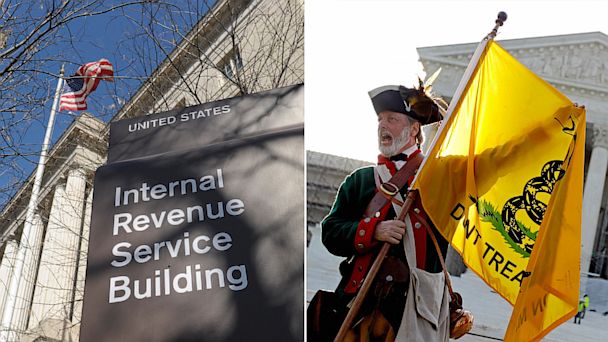IRS Scandal Reaches Farther Than Just Cincinnati

AP Photo
WASHINGTON - Cincinnati was far from the only IRS office where agents put conservative groups seeking tax exempt status under heightened scrutiny, according to documents obtained by ABC News.
David French, an attorney with the American Center for Law and Justice representing 27 groups that say they were unfairly scrutinized by the IRS, provided letters from two different agents in Washington, D.C., to tea party groups seeking tax exempt status. Other groups received demands for information from agents in two separate IRS offices in California.
The Albuquerque Tea Party, which applied for tax exempt status in 2010, heard from an IRS agent in Washington as recently as last month, who wrote that the "determination is currently being reviewed."
"The reviewer will either agree with my determination after which we will notify you and the organization as to our decision, or the reviewer will disagree with my initial determination after which we will work to reconcile our determinations," the agent out of the IRS's Washington office wrote. "It is not our office's policy to discuss our initial determination with the organization. At this time, I'm also not able to give you an estimate of when I will be notified of the reviewer's decision."
FBI to Investigate IRS Targeting of Tea Party Groups
Three years earlier another agent in Washington sent the group a questionnaire. The 10-question document included requests like "submit your completed financial data for 2009. Also submit proposed budgets for 2010 and 2011," as well as "provide copies of any publications that are distributed at your Educational Forums, whether by you or the panelists, and a listing of the topics discussed at the Forums. Also describe how the panelists are picked," among others. The group was told, as many other groups were as well, that the answers needed to be correct "under penalties of perjury."
When reached by ABC News at his office, this agent said he doesn't "think I can talk to anyone on the outside," adding, "I'd like to (talk) but I can't," and directing ABC News' inquiries to the IRS' public affairs office. The IRS has not responded to repeated requests from ABC News for interviews or to numerous questions about the ongoing scandal.
In an interview with ABC News, French said they "knew from the beginning that the IRS spin regarding the Cincinnati office was wrong because we had been dealing with California and D.C. as well and what's important to know is that we continue to deal with Washington, D.C."
"Given the paper trail, and it's not unique to us, there are others with similar paper trails, it's truly mystifying why the IRS beginning late last week pinned this on Cincinnati and Cincinnati alone," French said. "I don't have an explanation. It makes no sense. … Our jaws dropped when we saw that.
"The key here is this is not an isolated low-level decision from one office and the documents speak for themselves on that," French said, noting as well that the Cincinnati office itself is not a "backwater" location and instead is a "critical center for decision making."
And it's not just Cincinnati and Washington. Agents in two locations in California were overseeing tax exempt applications for tea party groups. In February 2012, the OKC PIA Association, also known as the OKC Tea Party, in Oklahoma City, Okla., received a 21 question letter from an agent in El Monte, Calif.
Additional information was requested, including "Have any candidates running for public office spoken or will they speak at a function for your organization?" and "Have you engaged or will you engage in business dealings with any candidate(s) for public office or an organization associated with the candidate, such as renting office space or providing access to a membership list?"
In January 2012, a group named Patriots Educating Concerned Americans Now received a 25-question letter from an agent in Laguna Niguel, Calif. Some of the questions included: "Please submit details regarding education, work, and philanthropic backgrounds for each of the organization's officers, directors, board members, and trustees" and "Other than serving as an officer, director and/or board member for the organization, please provide the names and addresses of each individual's employer/business, the nature of their employment/business, and the number of hours devoted to their employment/business," indicating that the IRS was interested not just in the group's activities, but in the personal employment and business information for members as well.